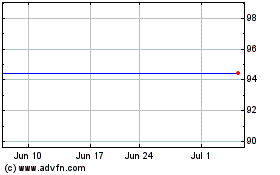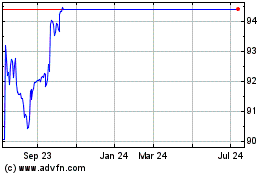By Sarah E. Needleman
Videogame companies pushing online competitions are grappling
with the digital equivalent of performance-enhancing drugs.
Players looking for an edge are using unapproved software and
exploiting bugs to make their weapons fire with perfect aim, among
other advantages, derailing honest gamers vying for prominence,
social-media fame and, in some cases, prize money.
The cheating pushes conscientious players to quit, which can
hurt sales and discourage people from embracing e-sports just as it
begins to win mainstream acceptance.
To fight back, companies are banning players by the tens of
thousands, hiring spies to uncover illicit code and spending more
on software designed to prevent or identify cheating.
Activision Blizzard Inc., e-sports contest organizer ESL and
other companies say they spend hundreds of thousands of dollars a
year on such software, and more for personnel to investigate
complaints. Those costs are expected to rise, they say.
"It's an arms race," said Jeff Kaplan, director of the
team-based shooter game "Overwatch," around which Activision
Blizzard is building a pro league. The game's development team last
month hired its first full-time engineer solely to combat
cheating.
Panopticon Laboratories LLC, a cybersecurity company, estimates
players world-wide spend between $350 million and $500 million a
year on cheat software, which is widely available for purchase
online.
Using the software isn't illegal, though such behavior often
violates a game's terms of service, said Ryan Morrison, an attorney
in New York.
While cheating has been rare among the professional ranks of
computer gamers, some of whom compete for million-dollar pots, it
has been more common at the amateur level, where aspiring e-sports
athletes vie from home for recognition and small prize pools,
according to Marcel Menge, managing director at ESL.
Players tend to feel anonymous at home, Mr. Kaplan said. When
cheating becomes rampant, "the perception of a game and community
around it can deteriorate very quickly," he said.
Widespread cheating at the casual or amateur level could dampen
the likelihood that players will aspire to go pro and hurt the
perception of the e-sports industry overall, said Mike Hickey, an
analyst at investment bank Benchmark Co. If it gets out of control,
"people will lose interest in e-sports and that will feed up the
chain."
A week after releasing "Overwatch" in May, Activision Blizzard
discovered thousands of players using cheat programs to help their
characters see through walls and fire weapons that never miss.
Others exploited a bug to repeatedly hide in unsanctioned areas,
which Activision Blizzard considers cheating. The company said it
banned the offenders.
"People who are very smart come up with sophisticated ways to
get around the prevention methods," Mr. Kaplan said.
Other examples of videogame cheating include tweaks that allow
players to dodge enemy attacks in ways not permitted and the use of
bots to help players compile resources such as virtual gold so they
can quickly advance in the game's environment.
Fernando Dominguez quit playing "Tom Clancy's The Division" two
months after buying it. The 35-year-old Miami resident, who says he
spends about $100 a year on extra content for games he likes, grew
tired of players taking advantage of a loophole to make their
characters invisible.
"They were literally like ghosts," Mr. Dominguez said.
Ubisoft Entertainment SA, which publishes "The Division," said
it fixed the bug and has banned more than 40,000 players for
different kinds of cheating over the course of nearly a year.
In a January survey, 16% of respondents said they cheated in a
videogame, according to Nielsen, which polled 939 U.S. console and
computer gamers ages 13 and older. Just more than a third said they
stopped playing a game because of cheating; 38% said it has gotten
worse in the past year.
Some companies buy services designed to block the cheat
software. BattlEye Innovations e.K. of Germany charges on average
between $10,000 and $100,000 a year for its technology, depending
on a game's number of players.
Companies also take legal action. Tencent Holdings Ltd.'s Riot
Games in August sued the makers of LeagueSharp a $15 monthly
service based in Peru that provided hacks to subscribers for
cheating in its e-sports game "League of Legends," causing
irreparable harm to the player community, according to the
complaint.
Earlier this month, a court forced LeagueSharp to shut down and
awarded Riot $10 million.
"Cheating sucks," a Riot spokesman said. "Riot is absolutely
committed to upholding the competitive integrity of our game."
The makers of LeagueSharp didn't respond to requests for
comment.
ESL, which organizes more than 10,000 competitions annually,
pays freelance spies between $25 and $40 an hour to secure cheat
software it can study. Cheaters are banned for six months before
they can petition to return.
Activision Blizzard routinely bans players who claim someone
else used their credentials to cheat, Mr. Kaplan said. "There are a
lot of little brothers and roommates cheating in the world," he
said.
Write to Sarah E. Needleman at sarah.needleman@wsj.com
(END) Dow Jones Newswires
March 22, 2017 05:44 ET (09:44 GMT)
Copyright (c) 2017 Dow Jones & Company, Inc.
Activision Blizzard (NASDAQ:ATVI)
Historical Stock Chart
From Mar 2024 to Apr 2024

Activision Blizzard (NASDAQ:ATVI)
Historical Stock Chart
From Apr 2023 to Apr 2024
